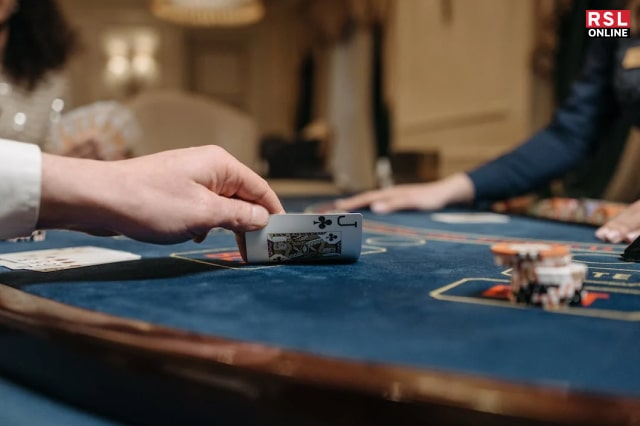When they discuss legends in poker, it’s almost impossible to leave out the great Daniel Negreanu. If success in poker were determined by the amount of money made from the game, Daniel would be the greatest player in history. As of 2021, he has accumulated over $42 million in prize money and won two World Poker Tour championships and six World Series bracelets. His achievements in the game have earned him dozens of accolades, including being recognized as the best poker player of the decade by the Global Poker Index in 2014.
However, it’ll interest you to know that, like you, Negreanu wasn’t born with the gift of poker. He started off like every average player, learned the game, and built his way to the top. If he can do it, you can too! Even better, Negreanu didn’t have access to the wealth of poker information currently available online, so this is a massive added advantage to you.
In this article, we’ll share with you some exclusive pro tips on taking your game to the highest level and playing like the great Daniel Negreanu.
How to Up Your Game and Win More at Poker – Top 6 Tips
A few minor changes to your poker tactics can transform your performance from average to outstanding. Here are six elite poker tips that will have you playing like Daniel Negreanu in no time. Although we can’t guarantee you’ll win time after time using these techniques, if you’re serious about improving your skills, you should incorporate what you learn on this page into your game.
- Playing fewer but more aggressive hands;
- Playing all your games in position;
- Avoiding limping;
- Folding when you’re unsure;
- Only staking what you can afford to lose;
- Betting your strong hands.
Play Fewer But More Aggressive Hands
One of the biggest differences between an average poker player and a professional is their number of starting hands. As a beginner, it might be enticing to start playing with as many hands as possible because the concept of folding may be boring to you. However, the more hands you play, the higher your chances of losing your entire bankroll quickly. This is unless you’re insanely lucky, but it’s not really advisable to count on luck.
That’s why it’s utterly important for players to have a strong preflop strategy. If you get it right at the pre-flop round, it’ll make your decisions in the following rounds easier and also increase your chances of winning the pot.
Luckily, the internet has made life easier, and you don’t need to develop a preflop strategy yourself. There are lots of quality preflop charts available for free. You can download and study them. But more importantly, you must be patient enough to stick to them. This is usually the most challenging part. You have to trust yourself at this stage.
Generally, it’s advisable to play a shorter but stronger range of hands and also play them aggressively. When you play aggressively, you confuse your opponents and make it harder for them to guess the strength of your hand.
Try to Play All Your Games in Position
In poker, playing in position against your opponents means that you’re the last person to act in each betting round. So you get to make decisions and play after seeing the actions of the other players. This is important because it not only allows you to make more informed decisions but also tells you vital things you need to know about the strength of your opponent’s hands.
For example, if you flop a pair and two opponents before you raise, you can conveniently fold because it’ll be unwise to go against two aggressive actions when your hands are not strong enough. If you were not in position and were the first to act, you might have still folded, but this time, you would have lost money for folding. In poker, information is power, and playing in position gives you that power.
Furthermore, playing in position also gives you some control over the size of the pot. Assuming you have an average hand that’s not good enough for a bet yet too strong to fold, you can check when your opponent checks to you. So the pot size will remain the same; however, checking as a position player will lead to the other players becoming more aggressive. Luckily, being a position player also allows you to read the game well, and you can use that information to play different hands and control the game.
Try Not to Limp
Limping in poker is used to describe a player calling instead of folding or raising a hand. It’s basically you betting the minimum required amount to stay in a round. This is common among players who play small-stakes live poker games. Limping is a very poor poker play, and in most cases, the more experienced players will take advantage and become aggressive by raising larger pre-flops.

When playing a hand, ensure you start by raising a preflop. It doesn’t matter if you have a weak or strong hand. Limping is a sign of weakness and is basically you inviting an attack on yourself. When you have a weak hand and limp, your opponent will definitely raise you and force you to fold, costing you a big blind.
This strategy can also be helpful to you. If you play at a table where your opponents are always limping, be very aggressive. For example, assuming the typical raise in your $3/$6 NL game is $12, and two players before you have limped, don’t settle for the standard $12 raise, as they might call it. Be more aggressive and raise up to $30 or $36. The players who limped will most likely fold and win you some money.
Here’s a table showing when to raise in poker.
| Reason | Reaction |
| To Protect Your Hand | Raise |
| To Reduce The Field | Raise |
| To Win More | Raise |
| To Bluff | Raise |
| To Get Information | Raise |
If You’re Unsure, Fold
To be successful in poker, you have to master your emotions. One of the biggest issues amongst inexperienced players is that they mostly don’t know when to fold. It is the easiest and yet hardest poker strategy.
This is mainly because of our brains and emotions. We are wired to always chase a win even when things don’t seem to be going our way, and that’s why folding can be difficult. Nevertheless, most times, it’s better to fold if you’re unsure than call. If you don’t have a strong hand and you’re contemplating raising, calling, or folding, always go for the fold.
Only Stake What You Can Afford To Lose
Poker is a game that requires rational decisions, and your gameplay will be affected if you’re not thinking clearly. That’s why it’s important that you stake what you’re comfortable losing. A good player can sense his opponents’ fear. When you play with the fear of losing, it subconsciously affects your decision-making and puts your opponents at an advantage.
Also, even good players lose sometimes because pokers, like most casino games or sporting events, requires a bit of luck. So you could stake all your chips and lose some real money in minutes. Whether you’re playing live or at a casino online UK real money, ensure you have a bankroll. A good bankroll will allow you to properly manage your finances and also make it easier for you to apply efficient poker betting strategies. Some of the more common bankroll strategies include:
- Martingale Strategy
- Reverse Martingale Strategy
- D’Alembert Strategy
- Fibonacci Strategy
Use Your Strong Hands to Build the Pot
When you have a strong hand, it’s advisable to bet on it. Most players prefer to be passive or play tricks, and while there’s nothing wrong with this strategy, it’s safer and better to bet your strong hands. If you’re playing mainly against passive players who prefer to call bets rather than take aggressive actions like raising and betting, always bet your strong hands.
Don’t check-raise or wait for your opponent to bet it for you because while you stand a chance of winning a bigger pot, you’re in trouble if your opponent decides to check back. Sometimes, you might bloat a pot while having the worst hand, but this is part of the game and shouldn’t deter you from betting your strong hands.
The Bottom Line
Becoming a pro player like the legendary Daniel Negreanu takes time and hard work. The way of life requires determination and a desire to surge through the odds. Casual players must maintain a strong mental stance and never stop sharpening their skills. It is very much possible if you’re dedicated. Having access to the right information is also important, and that’s why we have shared six elite tips that can help take your poker game to the next level.
Read Also:




























